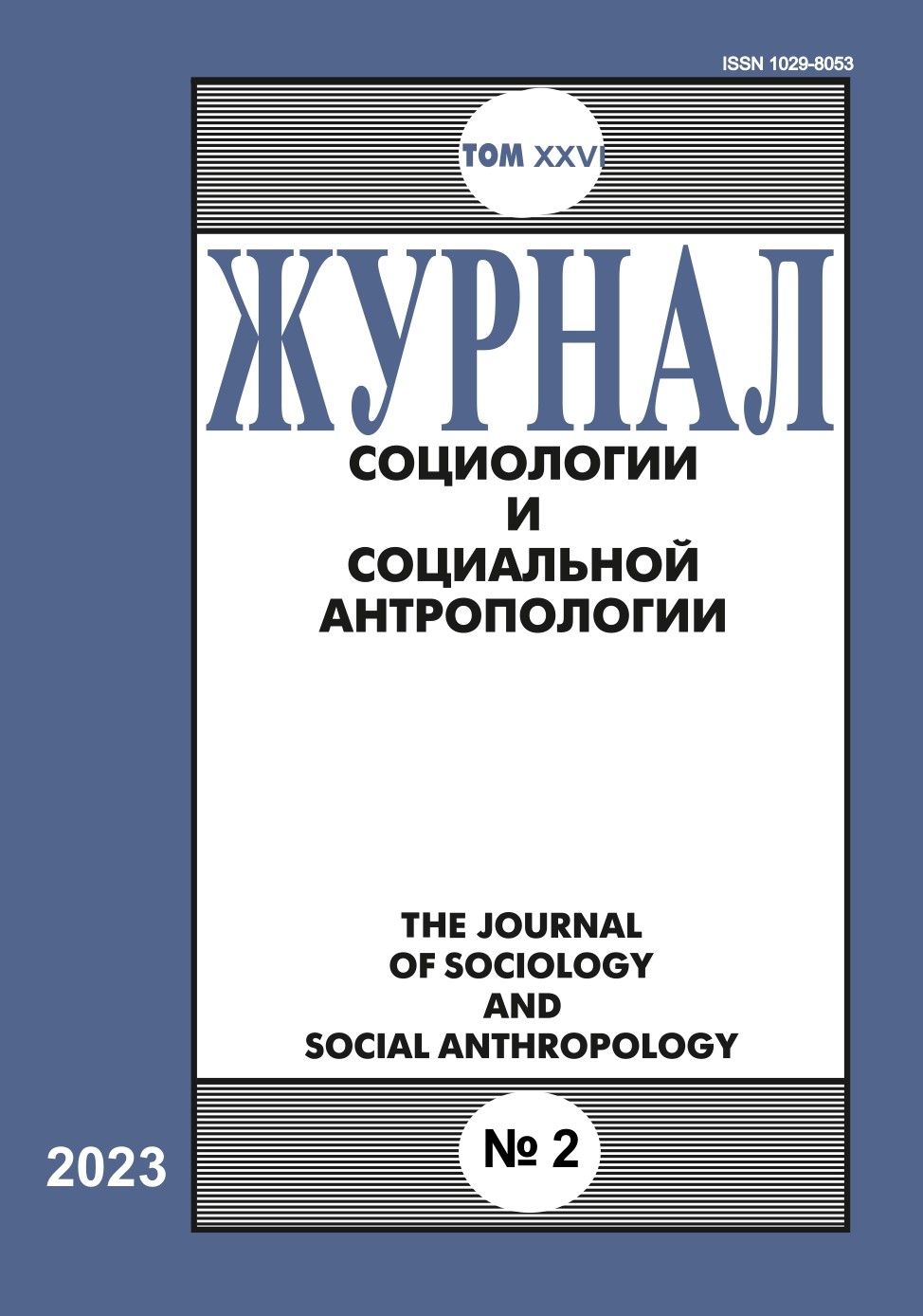Современный российский репетитор: профессиональный портрет, стимулы и стратегии деятельности
Аннотация
Литература
Абалкина И., Белова Ю., Зиньковский К., Латыпова Е., Милованов А. (2022). Есть ли у педагогов альтернатива репетиторству для увеличения доходов? Вопросы образования, 4: 8–32.
Балакина Т.П. (2012) Экономика репетиторства: мотивы, стимулы, модели. Экономика образования, 2: 115а–122.
Груздева М.Л., Бокарюкина У.М., Булганина А.Е. (2020) Исследование отношения школьников Нижнего Новгорода к использованию услуг репетиторов. Образование и проблемы развития общества, 3(12): 121–127.
Кашурников С.Н., Кириллов А.А. (2019) Репетиторство в России: статус, значение, проблемы. Теория и практика общественного развития, 4: 79–84.
Макеев П.А. (2019) Репетиторство в России: описание явления на основе онлайн-платформ. Журнал институциональных исследований, 11(4): 106–120.
Макеев П.А. (2020) Репетиторство в России: нельзя увидеть, но можно услышать. Журнал социологии и социальной антропологии, 23(3): 100–121.
Наумова А.А. (2018) Портрет современного репетитора в оценках обучающихся и их родителей: региональный анализ. Вестник Сургутского государственного педагогического университета, 5(56): 8.
Радаев В.В. (2022). Экспансия платформ как вызов социологии. Социологические исследования, 12: 15–28.
Чеснокова Л.В., Барсукова О.С. (2021) Репетиторство как социально-образовательный феномен. Инновационное образование и экономика, 25: 16–21.
Шевчук А.В. (2020). От фабрики к платформе: автономия и контроль в цифровой экономике. Социология власти, 32(1): 30–54.
Baker D.P., LeTendre G.K. (2005) National differences, global similarities: World culture and the future of schooling. Stanford: Stanford University Press.
Buchmann C., Condron D.J., Roscigno V.J. (2010) Shadow Education, American Style: Test Preparation, the SAT and College Enrollment. Social Forces, 89(2): 435–461.
Byun S., Chung H., Baker D. (2018) Global patterns of the use of shadow education: Student, family, and national influences. Research in the Sociology of Education, 20: 71–105.
Kobakhidze M.N. (2018) Teachers as Tutors: Shadow Education Dynamics in Georgia. CERC Studies in Comparative Education book series, 34: 113–143.
Loyalka P., Zakharov A. (2016) Does shadow education help students prepare for college? Evidence from Russia. International Journal of Educational Development, 49: 22–30.
Mori I., Baker D. (2010) The origin of universal shadow education: What the supplemental education phenomenon tells us about the postmodern institution of education. Asia Pacific Education Review, 11(1): 36–48.
Stastny V., Chval M., Walterova E. (2021) An ordinary moonlighting activity? Determinants of the provision of private tutoring by Czech schoolteachers. International Journal of Educational Development, 81: 102–351.
Stevenson D.L., Baker D.P. (1992) Shadow education and allocation in formal schooling: transition to university in Japan. American Journal of Sociology, 97(6): 1639–1657.
Suter L.E. (2016) Outside school time: An examination of science achievement and non-cognitive characteristics of 15-year olds in several countries. International Journal of Science Education, 38(4): 663– 687.
Tansel A., Bircan F. (2008) Private supplementary tutoring in Turkey: Recent evidence on its various aspects. IZA Discussion. Bonn: Institute for the Study of Labor (IZA).
Werbinska D. et al. (2019) English language teachers’ conceptualizations of one-to-one private tutoring: An international phenomenographic study. Uniwersytet im. Adama Mickiewicza w Poznaniu. Glottodidactica, 46: 175–196.
Yung K.W.H., Bray M. (2017). Shadow education: Features, expansion and implications. In Tse T.K.C., Lee M. (eds). Making sense of education in post-handover Hong Kong: Achievements and challenges. L.: Routledge: 95–111.
Zhang W., Bray M. (2015) Comparative research on shadow education: Achievements, challenges, and the agenda ahead. European Journal of Education, 55(3): 322–341.
Поступила: 31.10.2022
Опубликована: 03.07.2023






